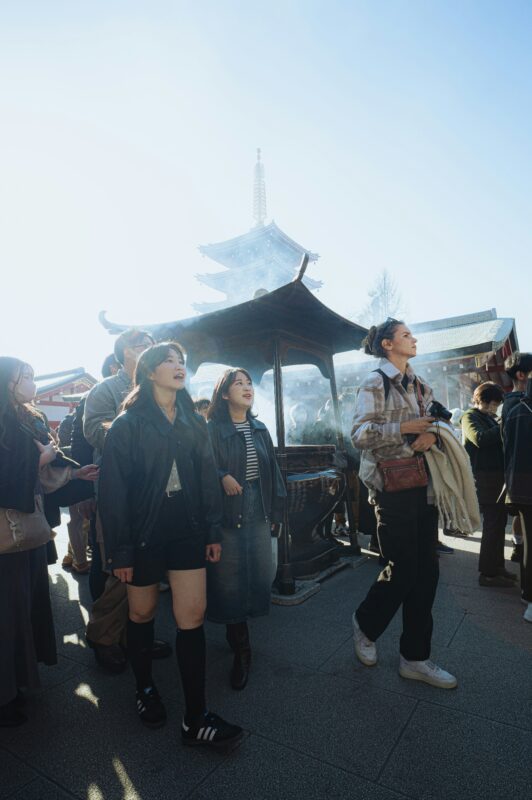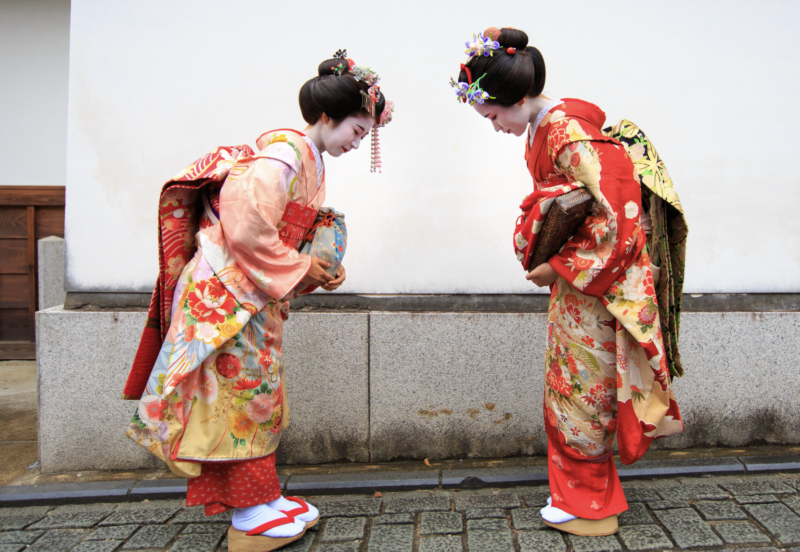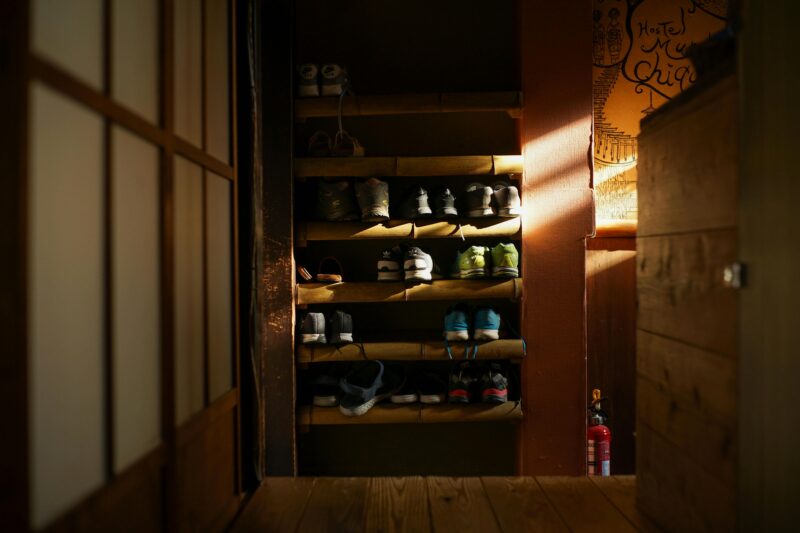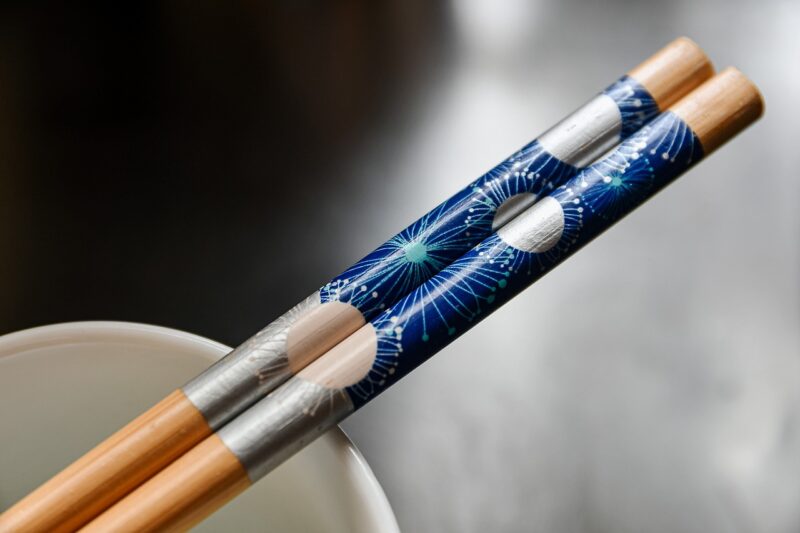Social Etiquette in Japan: A Guide to Polite and Respectful Interactions
Table of Contents
Japan is known for its polite culture and rich traditions, making social etiquette a big role in daily life. Learning these unspoken rules not only helps you navigate interactions with ease but also shows your respect for the local customs. Here’s a simple, practical guide to help you adapt to Japan’s social etiquette, covering everything from public behavior to private interactions.
General Public Behavior in Japan

1. Keep Noise Levels Low
In Japan, quietness in public spaces is a sign of respect. Talking loudly or creating unnecessary noise is frowned upon, especially on trains, in restaurants, or busy streets. People often speak softly, even in crowded spaces, to avoid disturbing others. Keeping your voice down shows consideration for those around you.
2. Respect Personal Space
Personal space is valued, even in crowded places like train stations. Avoid physical contact such as hugging or patting someone unless you’re close to them. When standing in line, maintain a reasonable distance from others. This sense of order reflects Japan’s emphasis on politeness and organization.
3. Avoid Eating While Walking
Although Japan has a rich street food culture, eating while walking is considered impolite. Meals are seen as something to be enjoyed thoughtfully, not rushed. Instead, find a bench or designated area to enjoy your food. This habit also helps keep public spaces clean.
4. Dispose of Trash Properly
Public trash bins are rare in Japan, so people often carry their garbage until they find an appropriate disposal area. Recycling is taken seriously, with separate bins for burnable, non-burnable, and recyclable waste. Many convenience stores provide these bins, so plan accordingly.
5. Use Mobile Phones Discreetly
Mobile phones should always be on silent mode in public. Making calls on trains or buses is seen as disruptive, so avoid it unless it’s an emergency. Messaging or using apps is acceptable, but keep the volume muted. This simple practice demonstrates respect for those around you.
Greetings and Introductions

1. Bowing is the Standard Greeting
In Japan, bowing is the customary way to greet someone. A slight bow is suitable for casual situations, while a deeper bow conveys respect in formal settings. Bowing goes beyond being a gesture – it’s a sign of humility and politeness.
2. Address People with Titles
When speaking to someone, use their family name followed by “-san” (e.g., Tanaka-san) to show respect. For professionals, titles like “Sensei” for teachers or doctors and “Shacho” for company presidents are appropriate. Using the correct title acknowledges a person’s role and position.
3. Practice Business Card Etiquette
In professional settings, exchanging business cards is an important ritual. Hand over your card with both hands and receive others’ cards in the same way. Take a moment to examine the card before putting it away. This small action shows respect and attention to detail.
4. Use “Excuse Me” Often
“Sumimasen” (すみません) is a versatile phrase in Japan. It can mean “excuse me,” “sorry,” or even “thank you.” Using this phrase in various situations demonstrates politeness and respect.
5. Avoid Using First Names Prematurely
First names are typically reserved for close friends or family. Use a person’s family name with an honorific like “-san” unless explicitly invited to use their first name. This level of formality maintains a respectful distance.
Private Settings and Home Visits

1. Remove Shoes at the Door
When entering someone’s home, it’s customary to take off your shoes and leave them neatly by the entrance. Slippers are usually provided for indoor use. This tradition reflects the importance of cleanliness and respect in shared spaces.
2. Bring a Gift (Omiyage)
Bringing a small gift when visiting someone’s home is a thoughtful gesture. Wrapped sweets or local specialties are ideal choices. The act of giving a gift shows appreciation for being welcomed into someone’s personal space.
3. Follow Table Manners
Wait for the host to say “Itadakimasu” (いただきます) before starting your meal. After eating, say “Gochisousama deshita” (ごちそうさまでした) to express gratitude. If served individual dishes, avoid altering the presentation unless it’s a casual setting.
4. Be Mindful of Visit Duration
Avoid overstaying your welcome. Leaving at the right time shows respect for your host’s time and schedule. A short but enjoyable visit is usually more appreciated than a lengthy one.
5. Show Gratitude When Leaving
Thank your host with phrases like “Arigatou gozaimashita” (ありがとうございました). A polite bow reinforces your appreciation for their hospitality.
Cultural Insights and Polite Gestures

1. Avoid Pointing with Your Finger
Pointing is considered impolite in Japan. Instead, gesture with an open hand or a slight head nod to indicate direction. This subtle change shows cultural awareness.
2. Give and Receive Gifts with Both Hands
Always use both hands when giving or receiving gifts. This small act conveys sincerity and respect. Take a moment to acknowledge the gift before setting it aside.
3. Follow Chopstick Etiquette
Never stick chopsticks upright in rice, as this is a funeral custom. Avoid passing food from one set of chopsticks to another. When not in use, place chopsticks on the holder.
4. Respect Quiet Zones
Temples, shrines, and memorials are places of reflection. Speak softly and avoid taking photos where prohibited. Showing respect for these spaces enhances your experience and demonstrates cultural sensitivity.
5. Always Be Punctual
Punctuality is highly valued in Japan. Arriving even a few minutes late can be considered rude. Plan ahead to ensure you’re on time for meetings, events, or visits.
1. When Should I Bow, and How Deeply?
Bowing is expected in Japan, and the depth of the bow depends on the situation. A slight bow works well for casual encounters, while a deeper bow shows more respect during formal occasions. If in doubt, mirror the other person’s bow—it’s a safe approach.
2. Can I Shake Hands Instead of Bowing?
Handshakes are acceptable in business or international settings, but bowing is still preferred in most cases. If you’re unsure, a handshake with a slight bow is a polite way to cover both bases, especially in professional environments.
3. What Should I Do If I Accidentally Offend Someone?
Mistakes happen, and Japanese culture values sincere apologies. If you offend someone, say “Sumimasen” or “Gomen nasai” (ごめんなさい) with a slight bow. These gestures convey your regret and willingness to make amends.
4. What Are Safe Topics to Talk About?
When chatting with someone, stick to neutral topics like food, travel, or Japanese culture. These are universally enjoyed and show genuine interest in the country. Avoid sensitive subjects like politics, religion, or personal matters unless the other person initiates the discussion.
5. What Are Some Table Manners I Should Know?
At the dining table, wait for the host to say “Itadakimasu” (いただきます) before eating and “Gochisousama deshita” (ごちそうさまでした) after finishing. Don’t stick your chopsticks upright in rice, as this is associated with funerals. Use chopstick rests when not eating and avoid passing food directly from chopstick to chopstick.
6. How Important Is Being On Time?
Punctuality is very important in Japan. Arriving even a few minutes late can be seen as disrespectful, so it’s best to plan your schedule carefully. Arriving 5–10 minutes early is often appreciated and shows respect for the other person’s time.
7. What Should I Wear to Fit In?
In Japan, modest and neat attire is appreciated, especially in formal or religious settings. While casual outfits are fine in many situations, avoid overly casual items like tank tops, shorts, or flip-flops when visiting temples, shrines, or business venues.
Practicing Japanese social etiquette helps you connect with locals and experience the culture authentically. By being respectful and mindful in both public and private settings, you’ll leave a positive impression and make meaningful connections.
Whether you’re exploring bustling cities or visiting someone’s home, following these customs will enhance your journey and create lasting memories.
Looking for a tour agency to help with your planning?
Contact Firefly Japan to book a private luxury tour in Tokyo & Kanto


